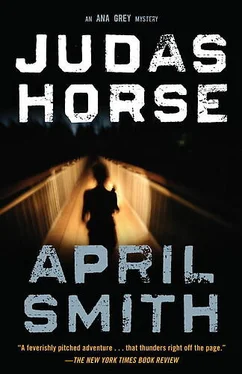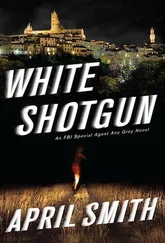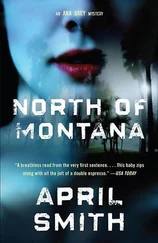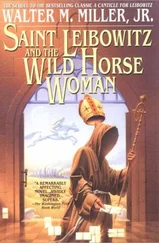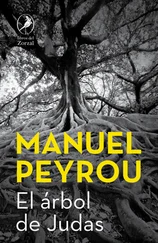But the younger Abbott’s obligatory interest turned ravenous when we uncovered Dick Stone.
“He is a traitor. To his country. To his fellow agents,” he says emphatically. “Make no mistake. He is not one of us.” “We’ve got a former FBI agent who’s bad,” Galloway agrees, “with federal warrants outstanding. He could have robbed banks and set up killings in other states. The dilemma is, when do we get Stone? Now, and blow the operation? Or do we play along with him and hope to get the bigger thing, which is FAN?” “I know this man,” Peter Abbott says. “I was his supervisor out here in the seventies when we were going after the Weather Underground. Stone started out all bushy-tailed, got hooked on drugs and liberated women, and went over to the other side. Years of living with scum have made him one of them. ” “We were wondering why you’re here, sir,” Angelo interjects. He has not changed his Hawaiian shirt getup for the visitor. “There wasn’t a hell of a lot of interest in FAN from headquarters when Steve Crawford was killed. L.A. had to fight for Operation Wildcat. What made you get on a plane?” “I was deeply saddened by that agent’s death,” Abbott intones on key, “but enraged by the fact that a man I trained was responsible. He threw all our principles right out the window. Simply put, the identification of Dick Stone has caused us to reframe the mission. Stone is a dangerous fugitive who may have ties to international terrorism. The purpose of Operation Wildcat has shifted.” Nobody disagrees. We are all in awe of being in the same room with the adviser to the next Republican presidential candidate. Rumor is that Peter Abbott will resign from the Bureau to run the national campaign.
Charisma. Conviction. Peter Abbott has both. You wouldn’t think so from the cherubic face and well-fed cheeks, the big sloping forehead and close-cut hair that starts halfway down his skull. Besides, I never trust people from Washington who wear those rimless glasses that try to make it look as if they aren’t wearing glasses at all.
I have been lounging at the end of the conference table, wearing the ragged-out purple parka, dirty jeans, and work boots, insolently spinning a pen across the polished wood. For a dozen years, I have appeared in these halls perfectly put together in a pressed suit and laundered blouse, with manicured nails and polished shoes. Just off the plane from the clean air of Oregon, I haven’t washed my hair since yesterday, and I find it unacceptable to listen to the politicking in this suffocating room.
There are grander themes to respond to.
The wild mustangs, for example. Mesteno, the legendary Kiger stallion — who here gives a damn about him?
Darcy DeGuzman.
“I understand the case turned on a single fingerprint off some… hazelnut brittle ?” Abbott raises an ironic eyebrow. “My North Carolina grandma used to make brittle. I haven’t thought of that in years.” Appreciative chuckles.
“I understand Agent Grey did some quick thinking and snagged the suspect’s prints.” I sit up, surprised to find him studying me with penetrating sea blue eyes.
“Good job.”
“Thank you, sir.”
And not only that; he also reads verbatim of my role in identifying Dick Stone. How Megan’s fingerprints on the hazelnut wrapper caused a hit off the NCIC data bank. How Megan Tewksbury turned out to be an alias and that the fingerprints of the woman using that name matched those of Laurel Williams, a young environmental scientist at UC Berkeley who disappeared in the seventies. Laurel was arrested during a protest march, and while in the custody of the Oakland police, she vanished. There was an investigation and the family sued the police department, but she never turned up. Nobody could explain how the young woman had escaped. If she’d escaped. A left-wing conspiracy theory persists that Laurel Williams was beaten to death in custody and disposed of in San Francisco Bay.
Abbott produces a surveillance photo from an environmental protest that took place on the Columbia River Gorge in the early seventies. Against a haze of wooded cliffs, a young lady with a heartrendingly unspoiled face is engaged in an angry shouting match with a fortyish white male in a suit. I can see in her righteousness the same woman who tried to stop the fight in the bar. The confrontation here is on the edge of violence. Professor Laurel Williams has literally draped herself in an American flag, looking like an avenging Statue of Liberty — and even in black and white, the senior Abbott, sporting a curly ’fro, is red in the face. Protesters surge toward the podium, fingers stretching in the peace sign. Somewhere in the crowd is our young undercover agent Dick Stone.
“Is that the esteemed congressman from Oregon?” Angelo asks.
Abbott nods. “That’s my father. Nice sideburns, Dad.” He waits for the laugh. “Thanks to Ana Grey’s outstanding work, we now know that Laurel Williams and former FBI agent Dick Stone are alive and well and living under assumed identities. When I was supervisor, Dick Stone was working undercover up in Berkeley to infiltrate the Weather Underground, a bunch of radicals who wanted to bring the Vietnam War home — literally blow up the government. Then he drops out of sight. There was speculation that Stone joined the subculture—” “ Speculation?” Angelo scoffs. “The Bureau’s always made him out to be disloyal, violent hippie scum.” “We believed he might have been involved in bank robberies and bombings along with the Weathermen,” Abbott says. “He was trained in munitions in the Army. But how did you tie Dick Stone to Laurel Williams?” he asks, still looking at me.
“Special Agent Dick Stone was the last one to sign out the prisoner, Laurel Williams, in order to accompany her to court in San Francisco for arraignment,” I say. “Neither one showed up. At some point, he took the name Julius Emerson Phelps, who was an infant who died in DeKalb, Illinois, in 1949.” “You and I might be the only ones old enough to remember”—Galloway shamelessly ogles Abbott for attention—“but that’s how the Weathermen went underground. They’d go to the graveyard, find babies who died the same year they were born, and apply for that baby’s birth certificate, saying it was theirs and they’d lost it. Then they could get a driver’s license and Social Security card. In those days, there was no correlation between birth and death certificates. No tracking system.
“Stone told Agent Grey that he was born in Ohio as a deliberate misdirection so that if anybody checked, they would not find Julius Emerson Phelps in that state and maybe just give up. It was another layer of deception. One more possible escape route.” Peter Abbott nods and opens a file. “Let’s see what we’ve got here.” “It’s a love story!” I announce to a dozen sets of startled eyes. “The greatest love story ever told! She’s a radical professor; he’s an undercover FBI agent. They fall in love. He busts her out of jail and they join the revolution. Now they’re old and gray, still together, still fighting for the cause.” Peter Abbott sends me a squinty, patient smile and drinks some water. There is a moment of silence.
“We have a former agent who flipped.” Galloway waves an unlit cigar impatiently. “That’s the whole deal right there.” He taps Stone’s rookie ID photograph, which shows a handsome, square-jawed young man wearing a white shirt and a suit with narrow lapels and a skinny tie. He has the steely, unspoiled look of a new cadet. Invincible confidence.
It stops my mind to imagine that the same hazelnut farmer who builds bombs and gets off on Blue Oyster Cult went through the Academy in Quantico, just like I did. That once upon a time, we shared the same ideals.
Читать дальше
